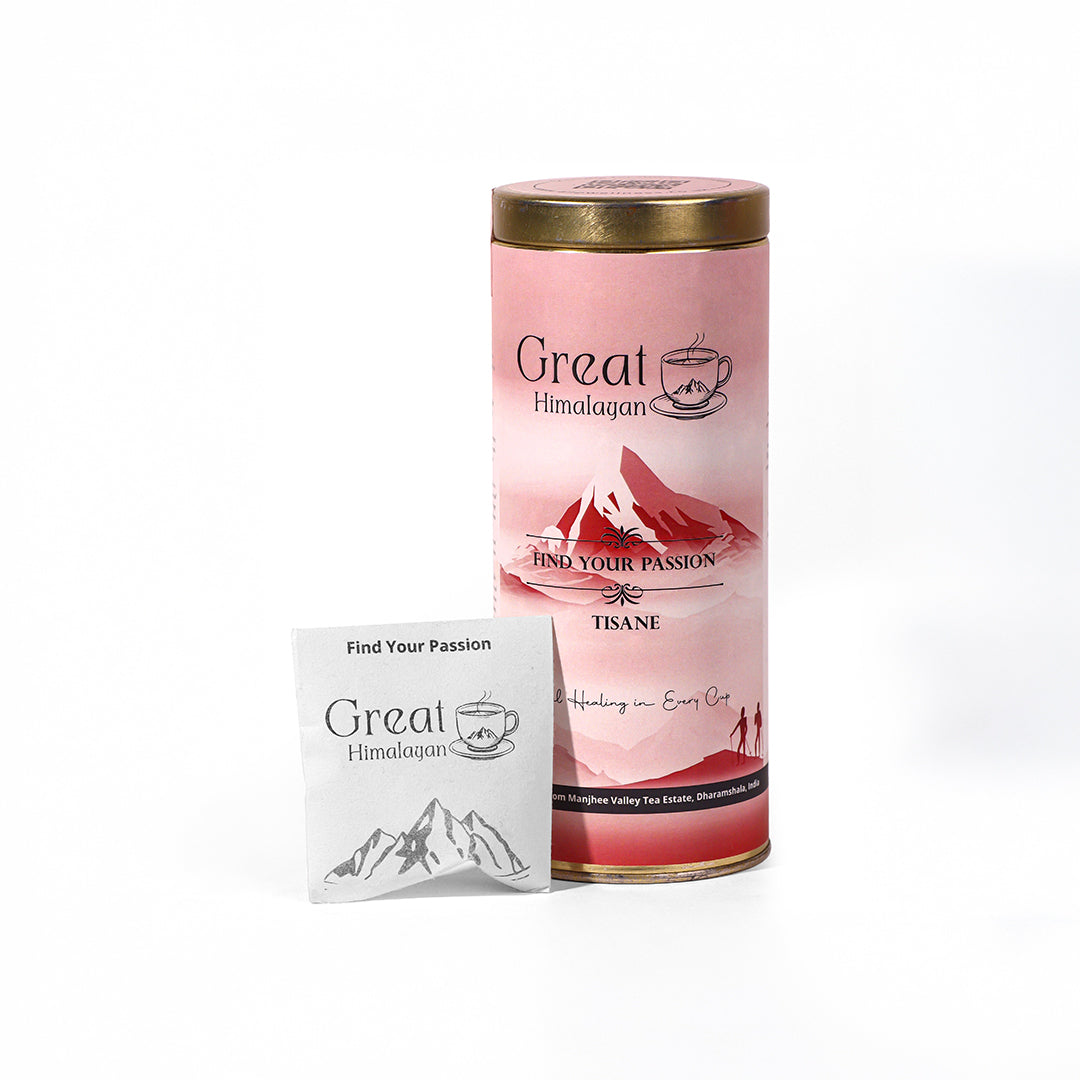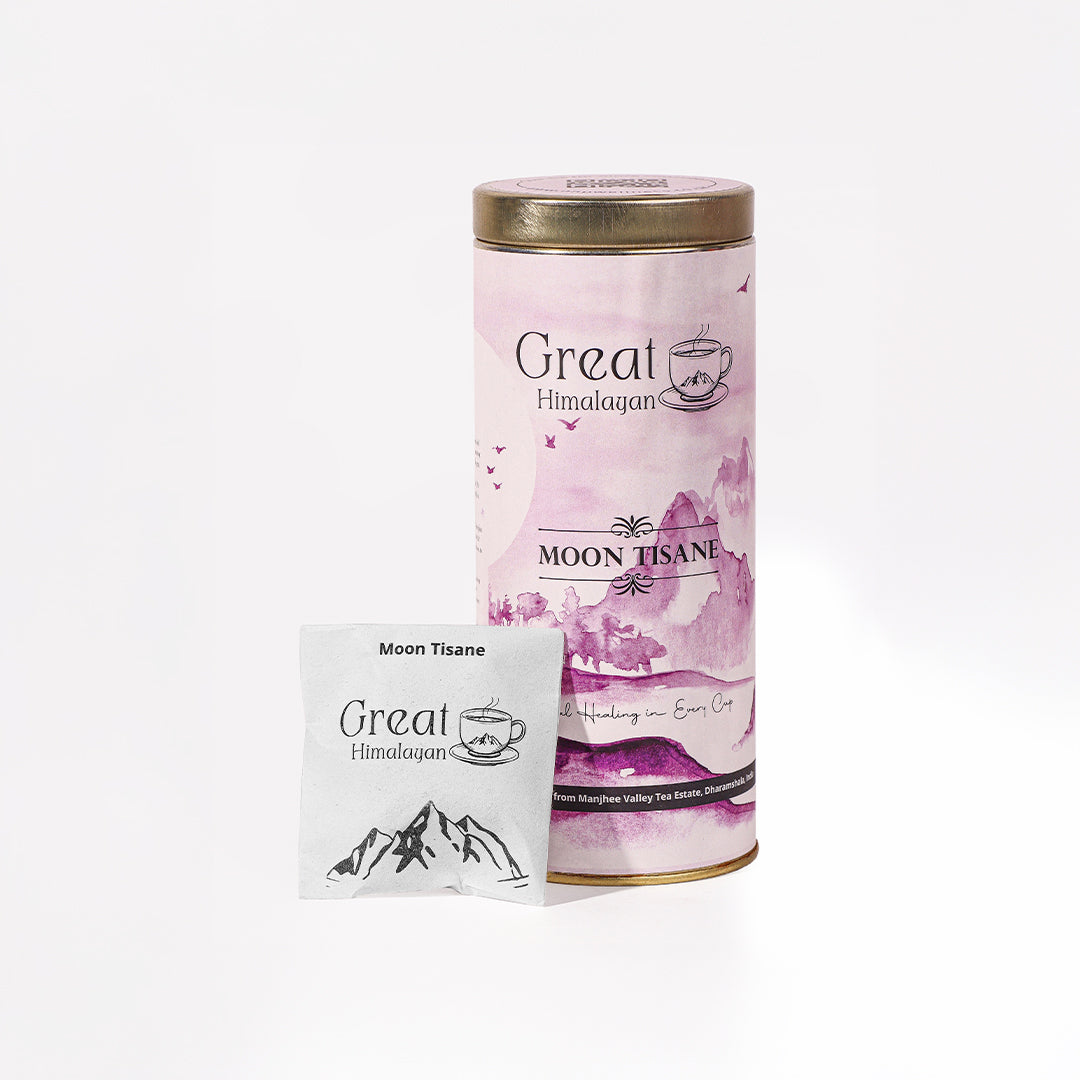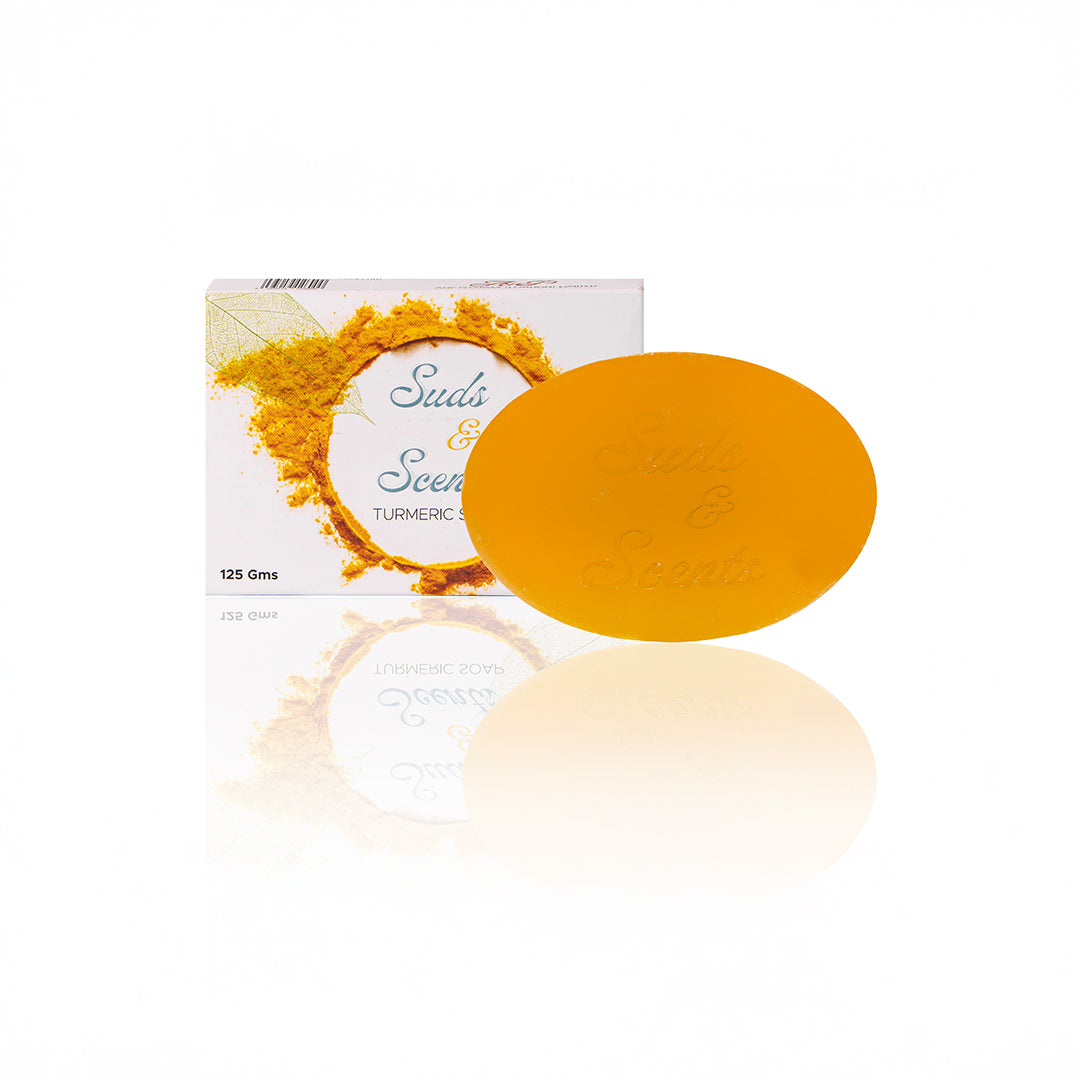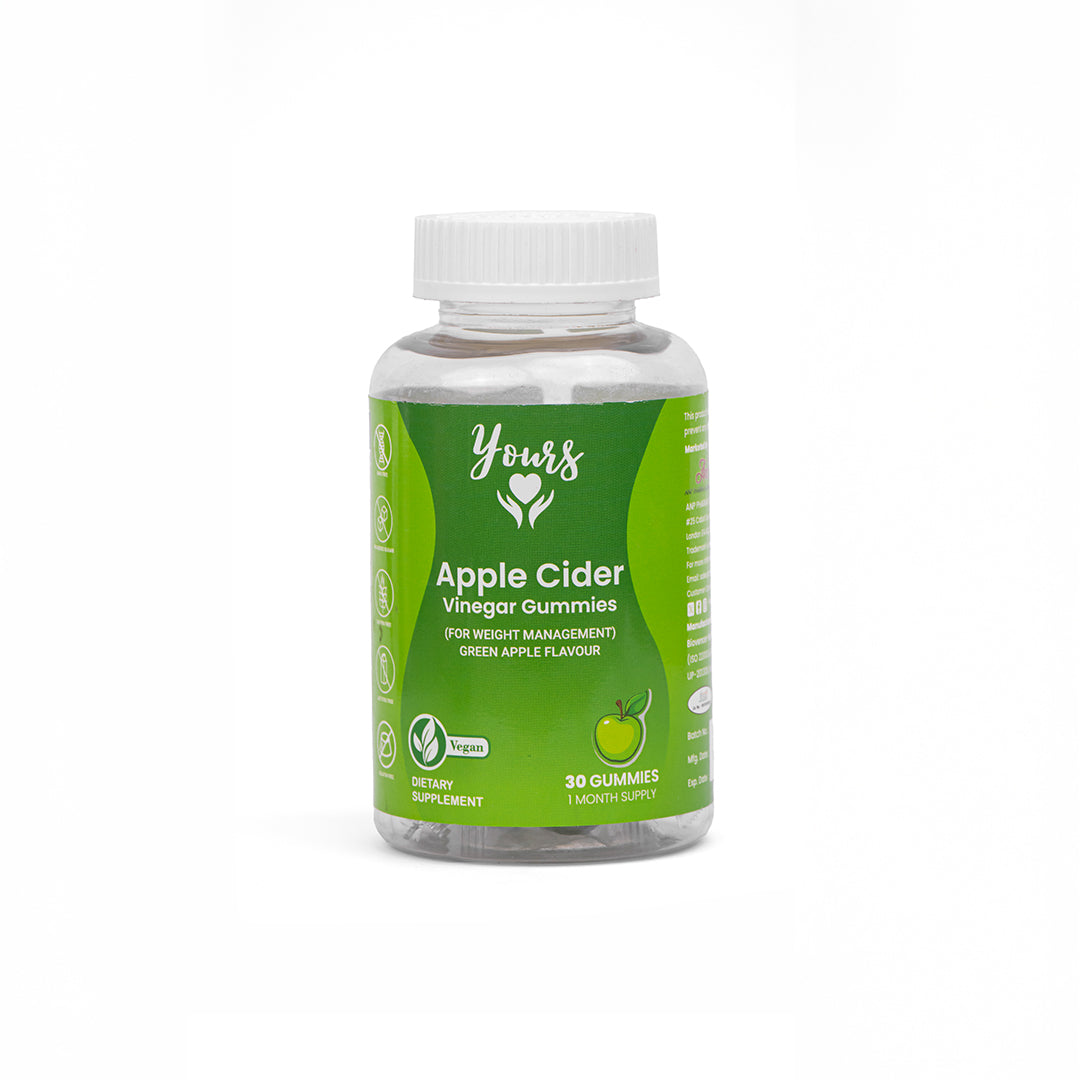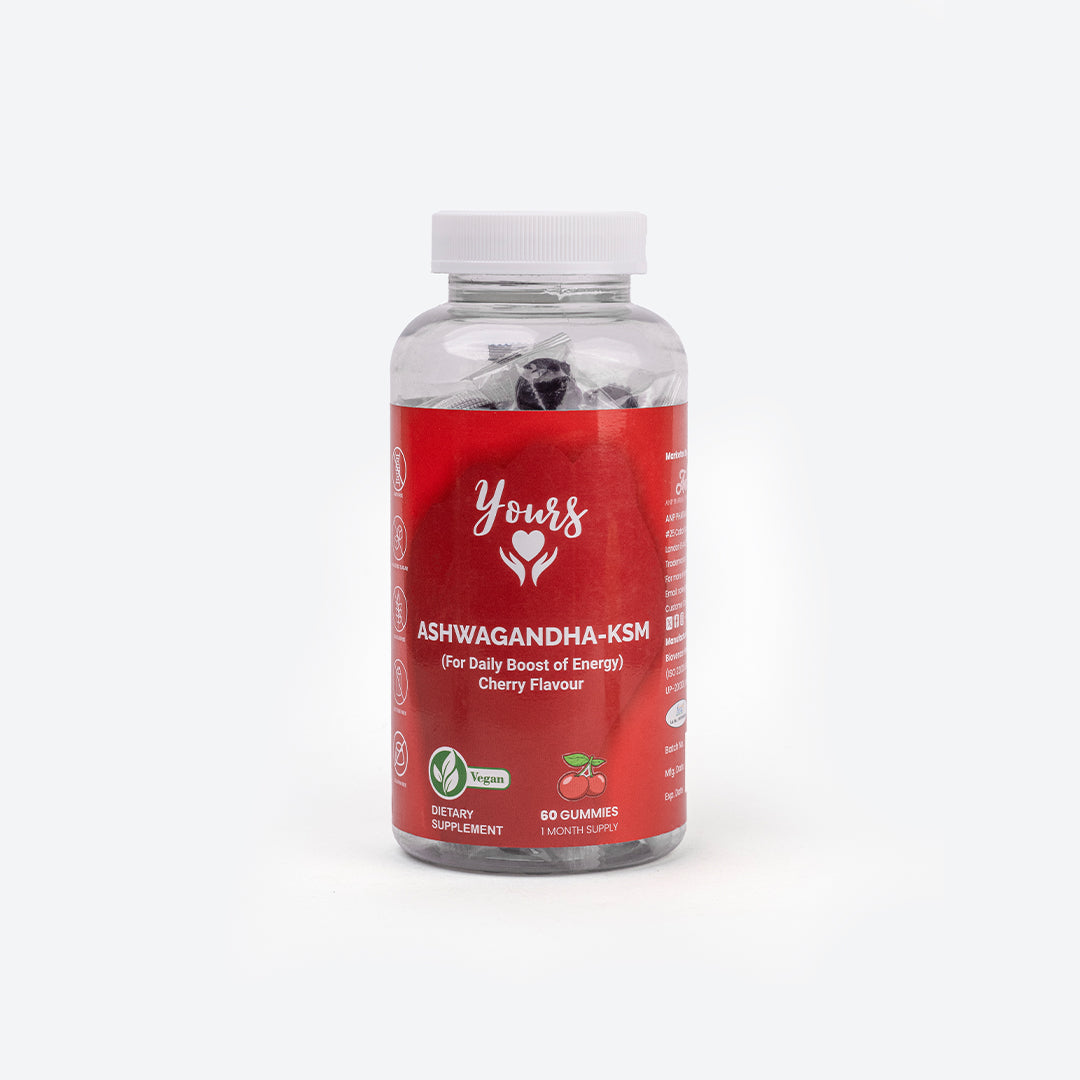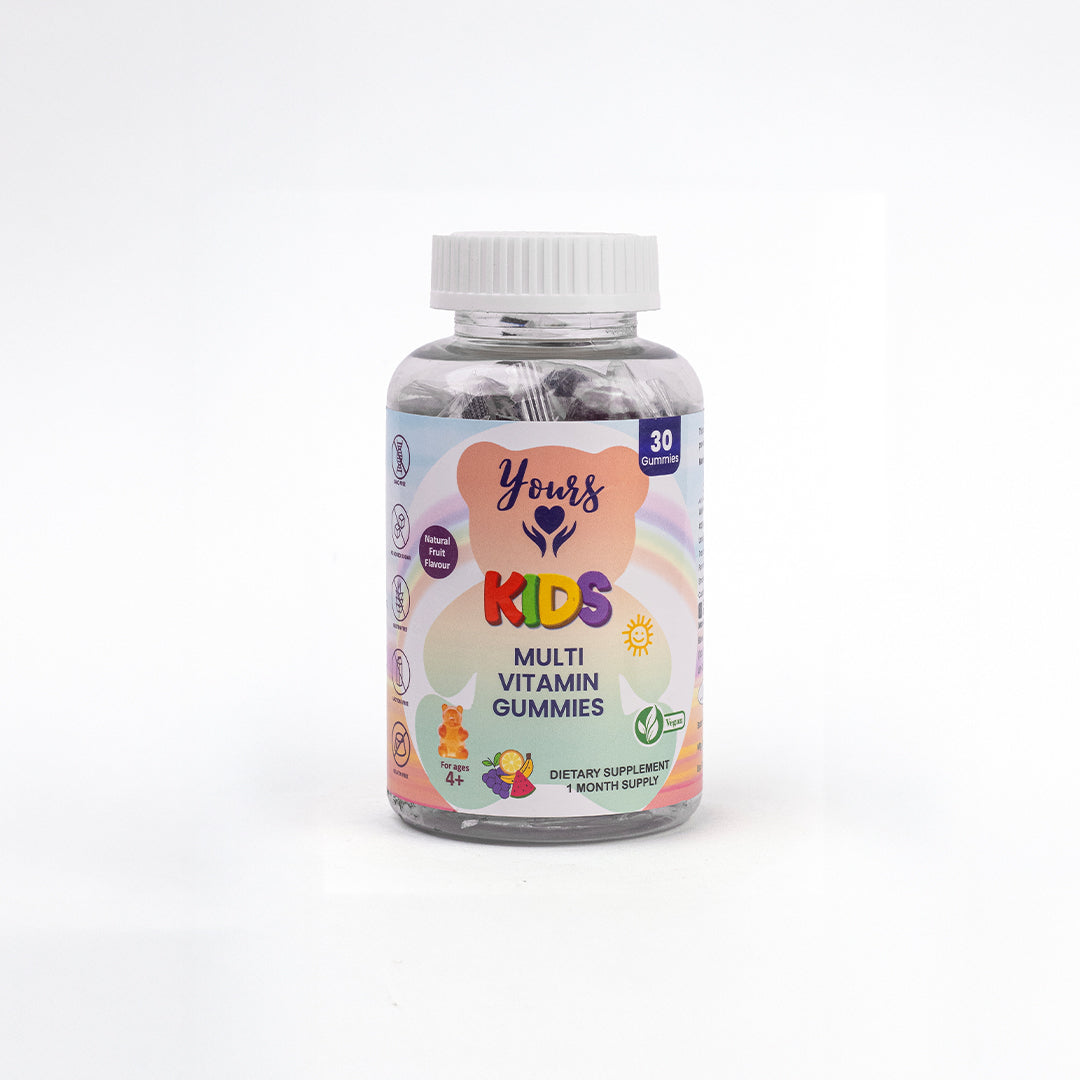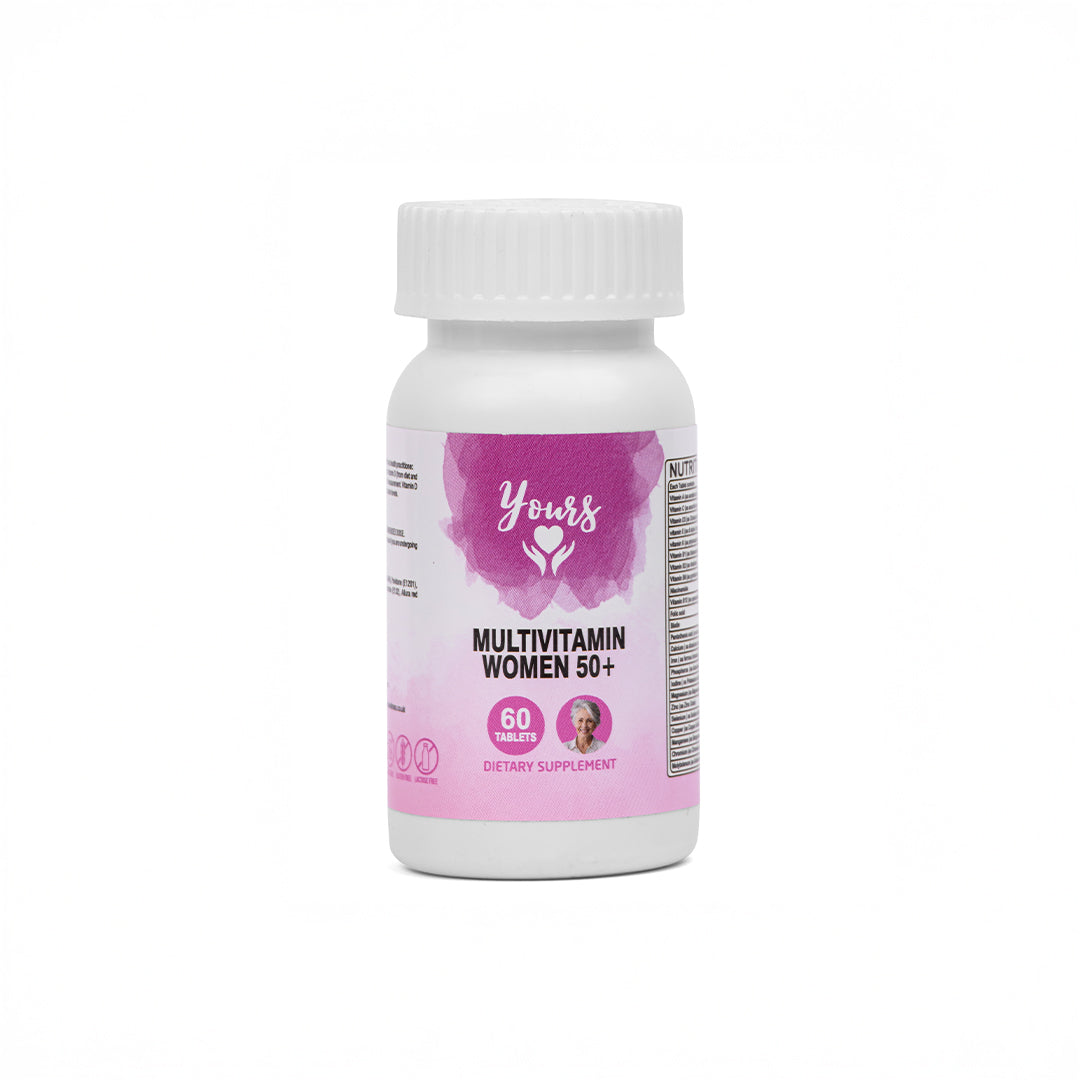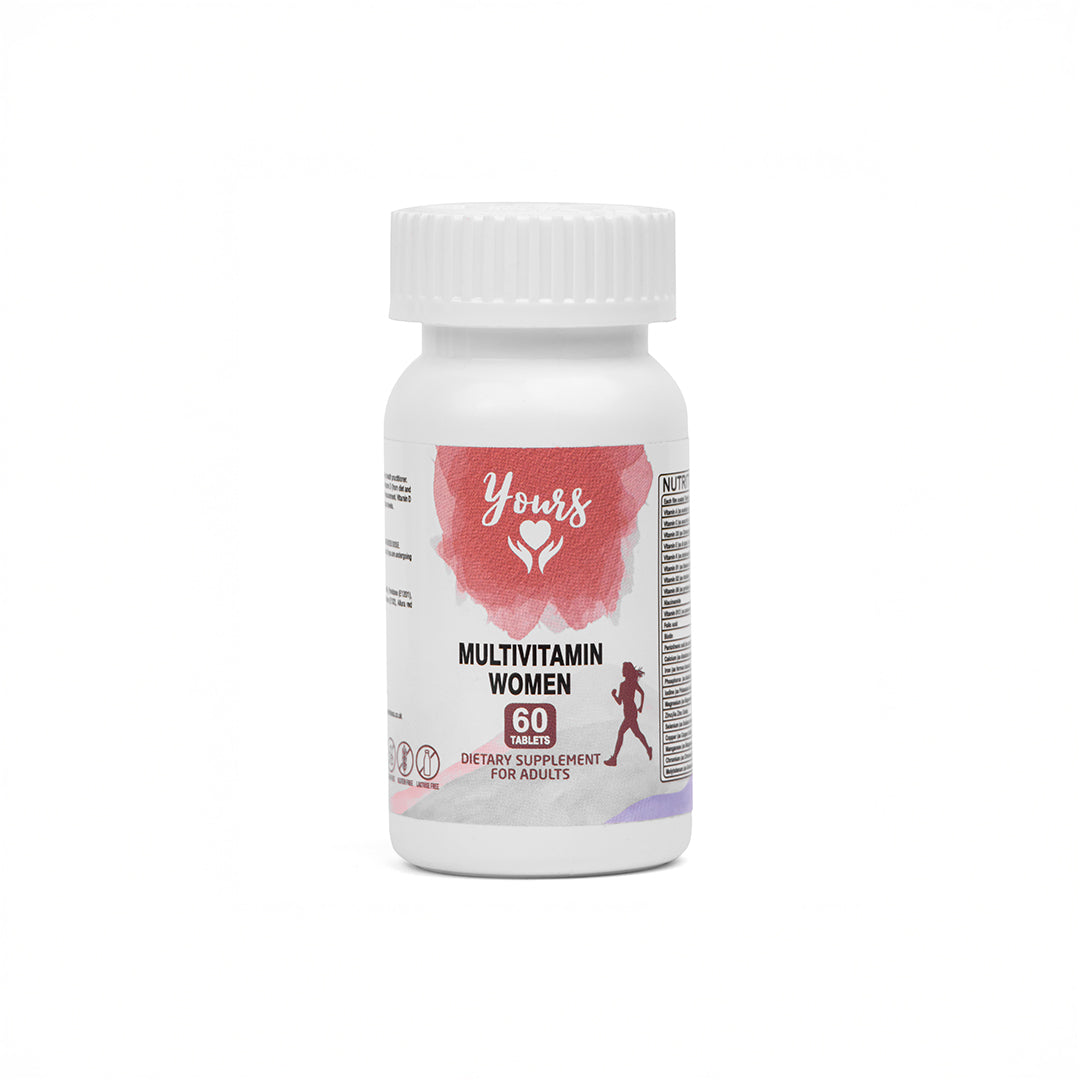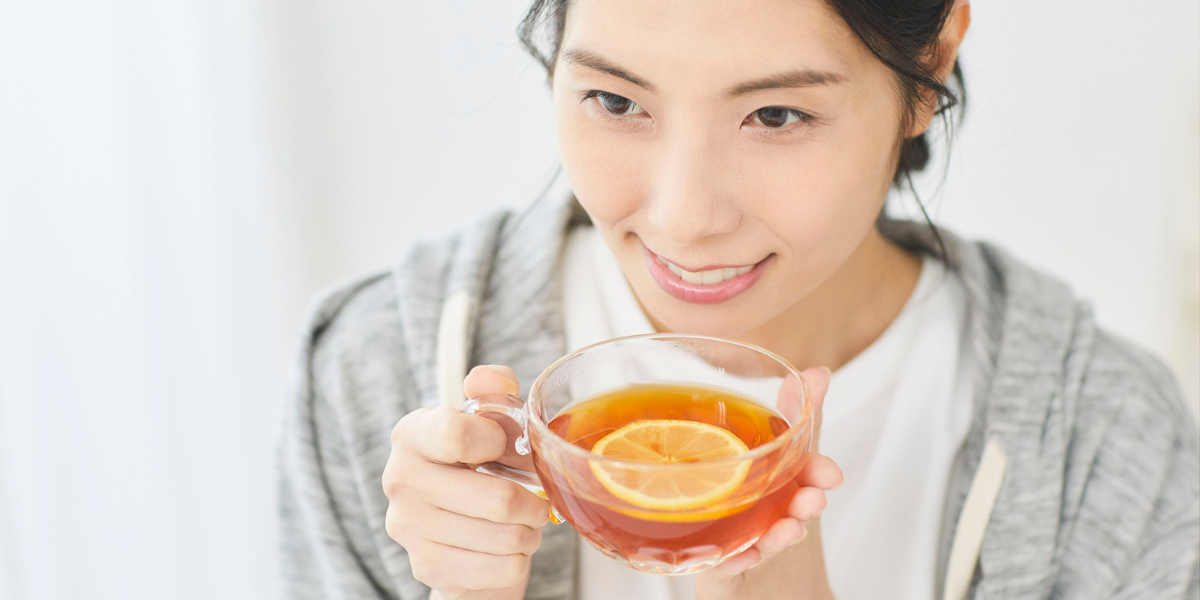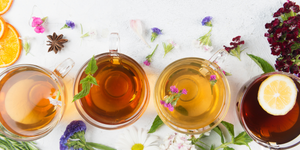In a restless world, genuine serenity has become a scarce commodity. With looming work deadlines, more devices than we can click on, and the weight of our daily responsibilities settling in, stress has silently crept into the human experience in the modern world. Even though there is no magical pill for inner peace, nature has been one of the answers for a long time — herbal teas for stress relief.
Actually, your tea routine is already meditative. Attacking the heart rate and clearing the mind can be the warmth, scent, and slow pace of a mug of tea. Beyond the ritual, however, there is also science to back it: some herbs have quantifiable effects on cortisol, sleep, and mental health. The UK has a strong tea culture, and herbal teas for stress relief are rapidly making their place as one of the best and most common natural substitutes to chemical-based relaxants.
A blend of old and new — from the calming flavonoids in chamomile to the adaptogens in ashwagandha — these teas are known to be what some consider the “science of calm in a cup.” And for those wishing to add a little tranquility to their day, these herbal brews might provide a lot more than momentary relief.
Why Herbal Teas Make You Relax Under Stress
Stress impacts nearly every system in the body — the nervous system, the endocrine system, digestion, and sleep — and they all interact with each other. Cortisol, the main "stress hormone" that your body produces, can lead to exhaustion, tension, and even inflammation if it is continually released due to stress. These physiological pathways are the ones that herbal teas tend to affect in order to promote relaxation and balance.
The History and Relationship of Herbs and the Nervous System
The human nervous system consists of two integral components, the sympathetic system (which incites the fight or flight), and the parasympathetic system (responsible for facilitating relaxation and healing)_ A lot of the herbs used in stress reduction tea have components that assist the body to transition from a heightened alert sympathetic state into a parasympathetic mode, or relaxation state.
Chamomile and lemon balm have also shown that they contain apigenin and rosmarinic acid (two compounds that bind to GABA receptors in the brain, the same receptors that anti-anxiety medications act on). This decreases the activity of nerves and creates a state of calmness, without inducing sleep. It is very similar to lavender tea, which also consists of linalool and linalyl acetate, both of which support serotonin production and reduce heart rate.
While each herb in herbal teas for stress relief helps in its own way, together they bundle a synergistic effect and provide not only emotional but also physical stability.
Effects of Herbal Compounds on Cortisol and Mood
Perhaps the better-studied mechanism by which herbal teas treat stress is via modulation of the stress hormone cortisol. Elevated cortisol can cause poor sleep, cravings, and decreased immunity. Adaptogens — such as ashwagandha and holy basil — support your body in adapting to stress by balancing cortisol secretion.
Another great example is green tea, which is very mildly caffeinated. It includes an amino acid called L-theanine, proven to raise the brain waves — alpha — associated with the relaxed alertness state reached in meditation. Drinking daily creates a calm and focused mindset, offsetting the jitters from stress or caffeine.
These natural processes can eventually retrain your response to stress. Rather than responding to triggers with a visceral response, your body learns to respond to pressure more softly. This is why herbal teas are seen today by researchers not just as comfort beverages but functional wellness tools for maintaining mental balance in the long run.
Why Herbal Teas Work for Stress
Adaptogens and Their Calming Role
Much of the idea behind these stress relief herbal teas revolves around adaptogens. Adaptogens — natural substances that can balance your hormones and help your body to adapt to stress — also increase resilience. Adaptogenic herbs are unique in that instead of sedating you or over-stimulating your system, they influence the body’s stress axis (that is, the HPA (hypothalamic-pituitary-adrenal) axis) and lead to the restoration of homeostasis.
Adaptogens are commonly known herbs such as ashwagandha, rhodiola, and holy basil used in traditional Ayurvedic and Eastern medicine. More recent studies have found that in individuals with chronic stress, ashwagandha in particular can lower cortisol levels by 30% or more. Hence, people seeking a natural calm with no side effects love to drink ashwagandha tea.
These adaptogens magnify the calming time-honored experience when paired with herbs such as chamomile or lemon balm. This combination not only masks stress but retrains those internal mechanisms to deal with it better. Wellness routines all over the UK are being changed by adaptogenic blends — and it’s why you’re beginning to see them everywhere.
How L-Theanine and Polyphenols Make a Difference
L-theanine (the relaxation amino acid from green tea) has attracted more scientific interest than possibly any other relaxation compound in nature. It is reputed for creating a state of calm, alertness — sometimes referred to as "relaxed focus." The alpha brain waves are associated with creativity, mindfulness, and reducing anxiety, and occur when L-theanine is consumed.
Green tea is not a stimulant like regular sedatives. Rather, it calms the thoughts that bounce around the mind and gives one better focus, which may benefit you if you tread with fatigue during the days due to anxiety. And that combination is what qualifies green tea as one of the top herbal teas for stress reduction.
This effect is amplified by polyphenols–potent antioxidants found in herbal teas. They fight oxidative stress, which is both the cause and consequence of the mental tension that we experience. When the body becomes too oxidatively stressed, neurons cannot communicate effectively, which fuels mood disorders; polyphenols act as free radical quenchers, offering protection to brain cells and lowering anxiety.
L-theanine pairs with polyphenols to create a two-pronged defense — one that soothes the mind, and one that nurtures it. This blend of mental crispness and biological restoration is what elevates the stress-relief herbal teas beyond a mere ritual of comfort into a rigorously supported practice for optimal wellness.
The Best Herbal Teas for Stress and Anxiety
Chamomile Tea: Nature’s Gentle Sedative
Chamomile has long been revered as a natural sedative. It has a flavonoid called apigenin, which binds to some receptors in your brain and calms you down. In clinical studies, German chamomile extract has been proven to be effective in reducing symptoms of generalized anxiety disorder. A cup before bed will decrease cortisol and promote restorative sleep.
In the UK, chamomile continues to be one of the most affordable and reliable herbal stress teas — a wellness cupboard essential.
Ashwagandha Tea: The Anti-Stress Elixir of Ayurveda
Ashwagandha is a powerful adaptogen, a derivative of an ancient herb from Indian Ayurveda. The human body benefits from cortisol balance, improved focus, and general emotional stability. Research indicates its frequent use reduces stress, increases energy, and even helps enhance the quality of sleep.
Due to the earthy, grounding taste of ashwagandha, it is best paired with something warm and spicy, like cinnamon or cardamom, and is commonly used as an evening tea when we want to unwind naturally. It represents a crossing of the Gap between Ancient Herbal Medicine and Modern Stress Management Science for many.
Peppy and invigorating, peppermint tea: The Mind and Muscles Cooler
The peppermint tea that serves its purpose as much in digestion as in stress relief is still quite refreshing, cooling, and aromatic. The menthol present in peppermint serves as a natural relaxant and light sedative for the muscles. It relieves tension headaches, relaxes smooth muscles — especially after a long and tiring day.
Unlike most herbal teas for stress relief, peppermint refreshes both body and mind at the same time. Even the smell can lower mental fatigue and brighten mood, while each sip calms the nervous system.
Drink Lemon Balm Tea And Calm Down With Every Sip
Lemon balm tea, made with Melissa officinalis if we're being precise, is also one of the best herbal teas for stress relief. Its soothing effects are well-documented along with its refreshing citrus scent. Lemon balm is a member of the mint family, and over the centuries, it has been used to relieve anxiety, improve mood, and enhance cognitive performance. Modern research confirms what ancient herbalists knew: the rosmarinic acid and citral in lemon balm help to raise levels of GABA, which is an inhibitory neurotransmitter that calms the brain and helps to balance emotions.
The Mechanism of Action of Lemon Balm for Stress Symptoms
Relaxing the Nervous System: Lemon balm is an excellent choice for a mildly calming tea. It helps to slow racing thoughts, quiet nervous tension, and also helps with digestion, which usually has a tough time when we are stressed. Lemon balm tea is a common beverage among those who refer to it as “sunshine in a cup” due to its relaxant effects without drowsiness [ 9 ]. It is known to reduce anxiety and improve sleep quality; therefore, it is perfect for evenings.
Lavender Tea: Aromatic Relaxation
Second to chamomile but perhaps more commonly known for its aroma is lavender tea, another staple amongst anti-stress herbal teas. Other than its aroma, lavender contains a variety of bioactive substances such as linalool and linalyl acetate that offer mild sedative and anti-anxiety actions. Both smelling lavender steam and drinking lavender tea activate pathways in the brain that promote calmness and heart rate reduction.
The Therapeutic Power of Lavender
Lavender tea works in the mind and body. That alone can trigger the amygdala, the emotional control center of the brain, and help relieve fear and tension. At the same time, the antioxidant content of the tea encourages proper brain function and supports healthy sleep cycles. Ingesting lavender tea each night is a fantastic way to cure insomnia whilst inducing deep sleep without the consequences of chemical sleep aids.
Green Tea: Find Focus While Keeping Calm
Although not definitively caffeine-free, Green tea is one type of herbal tea for stress relief that deserves high honors because its chemistry facilitates relaxation. It is the moderate caffeine content that induces alertness, and the L-theanine that pacifies it, producing a state of alert calmness.
How Green Tea Fosters a Feeling of Calm
This twofold action makes green tea the best drink for people who feel mental fatigue or pressure at work. It improves attention and cognitive performance without the jitters and crashes brought on by coffee. Green tea catechins and polyphenols also serve as antioxidants, which can help protect our brain cells from oxidative stress, which is often increased by chronic anxiety. This can, over time, contribute to a steadier mood and better overall cognitive health.
One of the best natural remedies for staying emotionally balanced throughout your day, hot or iced, is green tea.
Creating a Stress-Relief Tea Routine
It really is about finding an avenue to be calm — not necessarily the one perfect cup of tea which correctly brewed so that I can meditate without thinking about the stress — but the same way, every time. Crafting a daily tea ritual can assist the body and mind in learning how to recognize instances of pause. As such, gaining the most from herbal teas for stress relief also means considering the when, where, and how rather than just the blend.
Herbal Teas: When and How to Have Them For Maximum Effect
Start the morning with clarity and gentle energy with a morning tea such as green tea or peppermint. Lemon balm or lavender can alleviate that tension and mid-day slump as well as stave off burnout. Grounding herbs for preparing the body for a restful night of sleep are also suitable for the evenings, such as chamomile or ashwagandha.
You can inhale deeply while you wait a couple of minutes for your tea to steep to help it do its job. Pay attention to the smell and heat of the cup. Instead of just taking a sip, this mindful way of drinking tea is a stress relief ritual.
Herbal Teas as An Alternative to Sleeping Tablets and Man-Made Stress Relievers
We live in an age of instant results, which makes it tempting to pop a sleeping pill or an anti-anxiety medication as soon as we feel the stress creeping in. However, though these solutions may provide temporary relief, they are often followed by long-term consequences of dependency, fatigue, and hormonal imbalance. On the other hand, herbal teas for stress relief support the body, providing calming and comforting effects almost indefinitely, without disturbing your equilibrium.
The Reason Why Natural Solutions Are More Durable
The main difference between them is how these remedies work on your nervous system. Sleeping pills usually inhibit alert functions in the brain, forcing the body to rest but doing so at a price. But they can blunt emotional reactions, disrupt REM sleep, and establish a cycle of need. Unlike herbal teas that naturally stimulate relaxation by modulating neurotransmitters and stress hormones (cortisol), herbal teas, on the other hand, promote rest and relaxation by the nervous system,* so as opposed to increasing cortisol as many do.
For example, chamomile and lavender increase the activity of GABA — the brain chemical impacted by many anti-anxiety medications — but have no synthetic interference. Green tea’s L-theanine promotes focus and calm at the same time, something every medication fails to do. The effect is a calmness that comes across as natural and restorative, and not at all drugged.
In addition, the drug stress relief responds to symptoms, although herbal teas for that problem solve nurture the ailing equipment that holds emotions fundamental. This is what makes them perfect for those who want to build long-term stamina instead of temporary escape.
ANP Wellness Herbal Teas: Your Natural Brew For Daily Tranquility
Recently, a new brand has come onto my radar as a standout among the growing number of wellness brands in the UK; ANP Wellness, whose philosophy is all about purity, science, and balance. Healthy, purpose-driven herbal blends—calming the mind, increasing immunity, and sleep blends are created with sustainably sourced botanicals from partners you trust.
Stressed Out? Try This ANP Wellness Method
Thus, at ANP Wellness, we know for a fact that mental health is as important as physical health. That is why we needed our herbal teas for stress relief to combine comfort and clinically proven results. Whether it be the Chamomile Serenity Blend that calms frayed nerves after long days, or the Ashwagandha Infusion, which bolsters stress tone, every cup nourishes relaxation without compromise.
All our teas are free from artificial additives, caffeine, and synthetic flavours, allowing a more natural approach to relax and unwind! Whether you are new to herbal teas or a savvy pro with a tea time routine, integrating an ANP Wellness blend into your daily routine lays the foundation for tranquility day by day.
With stress an unavoidable aspect of modern living, ANP Wellness herbal teas offer the gentle reminder that sometimes, peace is merely a kettle and a mindful sip.
Takeaway: Restoring Your Calm, One Sip at a Time
While stress may be a reality of life, the way you cope with it makes up your quality of life. Natural, elegant, and well-supported, herbal teas for stress relief can help you reconnect with calm without synthetic chemicals or band-aid solutions.
Each mug is a little nudge to pause, take a breath, and find equilibrium. With repeated use, milder sedative teas reduce cortisol, facilitate concentration, promote sleep, and increase reactivity to sympathetic stimulation.
A cup of herbal tea versus A cup of lemongrass tea. In a world that incessantly calls to you, herbal tea is not just simply a drink; it is a daily ritual of self-care. From chamomile to peppermint to green tea, the science of calm really starts in a cup.
FAQs
How many times a day can I drink herbal teas to reduce stress?
Brew 2–3 cups as needed for optimal results. In the morning and evening — gentle focus in the morning, relaxation in the evening. Just keep in mind that drinking tea regularly will better fortify its adaptogenic and calming benefits.
Yes, it is possible to combine herbal teas in order to achieve a better result.
Yes. One approach is a layered effect of high-cycle herbs such as chamomile with lemon balm or ashwagandha to target different components of stress, from mental stress to hormonal.
Herbal Tea: Safe For Daily Use?
Most herbal teas that claim to relieve stress are perfectly safe when consumed in moderation. But anyone who is pregnant, breastfeeding, or on medication should speak with a healthcare provider before starting any new herbs.
Herbal teas: how long to feel the benefits?
Some report a sense of calm when drinking, but the true long-term benefits, such as better sleep and no anxiety, become apparent after 2–3 weeks of regular use.
Do herbal teas cause drowsiness?
Herbal teas, on the other hand, allow the body to relax naturally without losing awareness, unlike their sedative counterparts. Chamomile tea, for example, chamomile tea and lavender tea, which may be really sleepy, but on the second day, do not cause the sleepy hive.


